Table of Contents
Introduction
In the ever-evolving world of marketing, new concepts and strategies emerge to address changing consumer behaviors and technological advancements. One such term that has garnered attention is meta marketing. Often misunderstood or confused with related terms, meta marketing goes beyond traditional promotional strategies to focus on a holistic, comprehensive approach to branding and consumer engagement.
What is Meta Marketing, This article will explore what meta marketing is, its significance, how it differs from conventional marketing, and practical ways to implement it for business success.
Understanding Meta Marketing
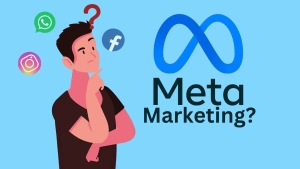
Meta marketing is a strategic approach that transcends individual campaigns or tactics. It is the overarching philosophy or framework that shapes an organization’s marketing efforts, aligning them with its core values, mission, and vision.
Meta marketing refers to the planning, creation, and implementation of a unified marketing framework that takes into account the brand’s identity, goals, and the broader cultural, societal, and economic context. It is less about individual ads or promotions and more about the strategic blueprint that guides all marketing activities.
Key Features of Meta Marketing
- Holistic Approach: Focuses on the big picture rather than isolated campaigns.
- Brand-Centric: Rooted in the organization’s mission and vision.
- Contextual: Considers societal trends, consumer psychology, and market dynamics.
- Adaptive: Evolves with changing business environments and consumer needs.
Core Components of Meta Marketing
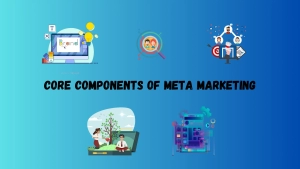
-
Brand Identity Development
Meta marketing begins with a clear understanding of the brand’s identity. This includes:
-Defining the brand’s mission and vision.
-Establishing guiding principles that appeal to the intended audience.
-Creating a consistent tone, style, and message. -
Market and Consumer Insight
Meta marketing requires a thorough understanding of the target demographic. This involves deep research into:
-Consumer behaviors and preferences.
-Societal trends and cultural shifts.
-Competitor analysis and market dynamics. -
Integrated Marketing Communication (IMC)
Meta marketing ensures that all communication channels—social media, email, content marketing, and more—work cohesively. This creates a unified voice and experience for the consumer.
-
Sustainability and Ethics
Modern meta marketing often emphasizes ethical practices and sustainability. Businesses are increasingly aligning their strategies with environmental and social responsibility to appeal to conscious consumers.
-
Technological Integration
From data analytics to AI-driven insights, technology plays a significant role in meta marketing. Tools like CRM platforms and marketing automation help streamline and personalize the consumer journey.
The Importance of Meta Marketing
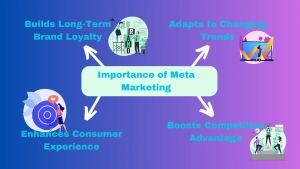
-
Builds Long-Term Brand Loyalty
By focusing on the broader vision and values of a brand, meta marketing fosters a deeper emotional connection with consumers, driving loyalty and advocacy.
-
Adapts to Changing Trends
Unlike traditional marketing strategies that may become outdated, meta marketing evolves with cultural and technological changes, ensuring relevance in dynamic markets.
-
Enhances Consumer Experience
Meta marketing’s holistic approach ensures a seamless and engaging customer journey, from awareness to purchase and beyond.
-
Boosts Competitive Advantage
By aligning marketing efforts with a strong brand identity and ethical practices, businesses can differentiate themselves in crowded markets.
Steps to Implement Meta Marketing

Step 1: Define Your Brand Philosophy
–Develop a clear mission and vision statement.
–Identify your brand’s unique selling proposition (USP).
–Create a values-based framework that guides decision-making.
Step 2: Conduct Comprehensive Research
–Use market research tools to understand consumer needs and trends.
–Analyze competitors’ strategies to identify gaps and opportunities.
–Incorporate feedback from customers to refine your approach.
Step 3: Create an Integrated Marketing Plan
–Align all campaigns with your overarching meta marketing strategy.
–Ensure consistency across all touchpoints, including social media, website, and offline channels.
–Use storytelling to connect emotionally with your audience.
Step 4: Leverage Technology
–Invest in marketing automation tools for personalization and efficiency.
–Analyze data to monitor performance and improve tactics.
–To improve engagement, investigate cutting-edge technology like AI and AR.
Step 5: Monitor and Adapt
–Continuously track metrics like brand awareness, customer satisfaction, and ROI.
–Keep up with market developments and modify your approach as necessary.
–Encourage your marketing team to be innovative.
Meta Marketing in the Digital Age
The rise of digital technologies has expanded the possibilities of meta marketing. Let’s explore how digital tools and platforms enhance this approach.
-
Data-Driven Insights
Advanced analytics tools provide businesses with deep insights into consumer behaviors and preferences, enabling more informed decision-making.
-
Personalization at Scale
Using AI and machine learning, marketers can create hyper-personalized experiences that align with the brand’s values and the consumer’s needs.
-
Social Media Integration
Platforms like Instagram, TikTok, and LinkedIn allow brands to share their story, connect with audiences, and build a loyal community.
-
Content Marketing as a Pillar
High-quality content that reflects the brand’s mission—such as blogs, videos, and e-books—is essential for marketing success.
Real-World Examples of Meta Marketing
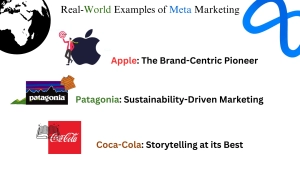
-
Apple: The Brand-Centric Pioneer
Apple’s marketing strategy epitomizes meta marketing. By focusing on its core values of innovation, simplicity, and user experience, Apple has built a loyal customer base that transcends individual product launches.
-
Patagonia: Sustainability-Driven Marketing
Patagonia integrates its mission of environmental responsibility into every marketing initiative. From using recycled materials in its products to advocating for climate action, the brand has established itself as a leader in ethical marketing.
-
Coca-Cola: Storytelling at its Best
Coca-Cola’s campaigns, like “Share a Coke,” go beyond product promotion to emphasize connection and shared experiences, reflecting its brand identity as a symbol of happiness and togetherness.
Common Challenges in Meta Marketing

-
Aligning Teams with the Vision
Ensuring all team members understand and adhere to the brand’s marketing strategy can be challenging, especially in large organizations.
-
Maintaining Consistency Across Channels
With multiple platforms and touchpoints, delivering a unified message requires careful planning and execution.
-
Balancing Short-Term and Long-Term Goals
While meta marketing focuses on the big picture, businesses must also address immediate sales and revenue targets.
The Role of Technology in Meta Marketing
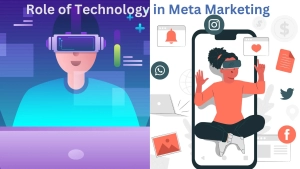
Technology has become a cornerstone of meta marketing, enabling brands to execute strategies that align with their mission while simultaneously addressing customer needs. From data analytics to automation, here’s how technology plays a pivotal role:
-
Predictive Analytics for Informed Decision-Making
Data-driven decision-making is central to meta marketing. Predictive analytics tools help businesses anticipate trends, understand consumer behavior, and plan campaigns accordingly.
Example: A retail company might use historical data and AI to predict upcoming fashion trends and align its marketing strategy to launch relevant products.
-
Automation for Consistency
Marketing automation tools like HubSpot, Marketo, and ActiveCampaign ensure consistency across all channels. They allow businesses to deliver personalized messages at scale without sacrificing quality or alignment with the brand’s vision.
-
Personalization Through AI
AI tools enable hyper-personalization, which is a hallmark of marketing. By analyzing user preferences and behaviors, businesses can tailor content, product recommendations, and marketing messages to individual needs.
Example: E-commerce platforms like Amazon use AI-driven recommendations to offer products that resonate with each customer, enhancing engagement and conversions.
-
Enhanced Consumer Engagement with AR/VR
Augmented reality (AR) and virtual reality (VR) technologies offer innovative ways to engage customers and immerse them in the brand experience.
Example: Furniture brands like IKEA use AR apps to allow customers to visualize how products will look in their homes, aligning with a customer-centric meta marketing approach.
Tips for Implementing Meta Marketing Successfully
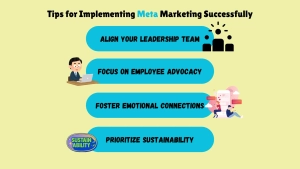
-
Align Your Leadership Team
Ensure that top-level executives understand and support the meta marketing philosophy. Their buy-in is critical for creating a unified vision that cascades across all departments.
-
Focus on Employee Advocacy
Employees are powerful ambassadors of your brand. Train them to embody your company’s values and communicate them effectively to customers.
Example: Hosting workshops on your company’s mission and empowering employees to share their authentic experiences can enhance brand authenticity.
-
Foster Emotional Connections
Meta marketing thrives on emotional storytelling that connects with audiences on a deeper level. Invest in campaigns that highlight your brand’s impact on communities or individuals.
Example: A nonprofit organization might share stories of how its initiatives have transformed lives, inspiring donors to contribute.
-
Prioritize Sustainability
With consumers increasingly valuing eco-conscious brands, incorporating sustainability into your meta marketing strategy can be a game-changer. Highlight your efforts through transparent reporting and engaging content.
Future Trends in Meta Marketing
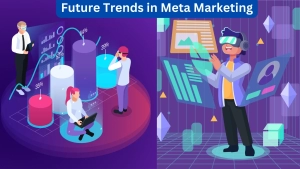
As the digital landscape evolves, It is likely to adapt in exciting ways. Here are some trends to watch:
-
Greater Emphasis on Diversity and Inclusion
Consumers expect brands to reflect societal values, including diversity and inclusion. Meta marketing strategies will increasingly incorporate these principles to foster genuine connections with diverse audiences.
-
The Rise of Experiential Marketing
Interactive experiences that immerse customers in a brand’s story will become more prominent. Whether through virtual events or in-person activations, experiential marketing will play a key role in future meta strategies.
-
AI-Powered Decision Making
AI will continue to enhance marketing by providing real-time insights, automating routine tasks, and enabling advanced personalization. Brands that leverage AI effectively will gain a significant edge.
-
Ethical Data Practices
As data privacy becomes a critical concern, brands will need to adopt transparent and ethical data practices to maintain consumer trust.
Why Your Business Needs Meta Marketing
It offers businesses a unique opportunity to build a brand that resonates with consumers on a deeper level. By focusing on long-term vision, sustainability, and emotional connection, companies can foster loyalty, adaptability, and relevance in an ever-changing market. Whether you’re a small startup aiming to establish a foothold or an established brand seeking to stay ahead of the competition, embracing meta
Strategic marketing can dramatically transform your approach and position your business for enduring success.
Conclusion
Meta marketing is more than a strategy—it’s a mindset that empowers businesses to connect deeply with their audiences while staying true to their core values. By focusing on a holistic, long-term approach, businesses can not only achieve immediate results but also build a sustainable and impactful presence in the market.
Whether you’re a small startup or a global enterprise, embracing meta marketing can transform the way you approach branding, communication, and customer engagement.
Author : Mashhar Mohamed
Learner of DigiSkillz, Digital Marketing Institute in Kottakkal



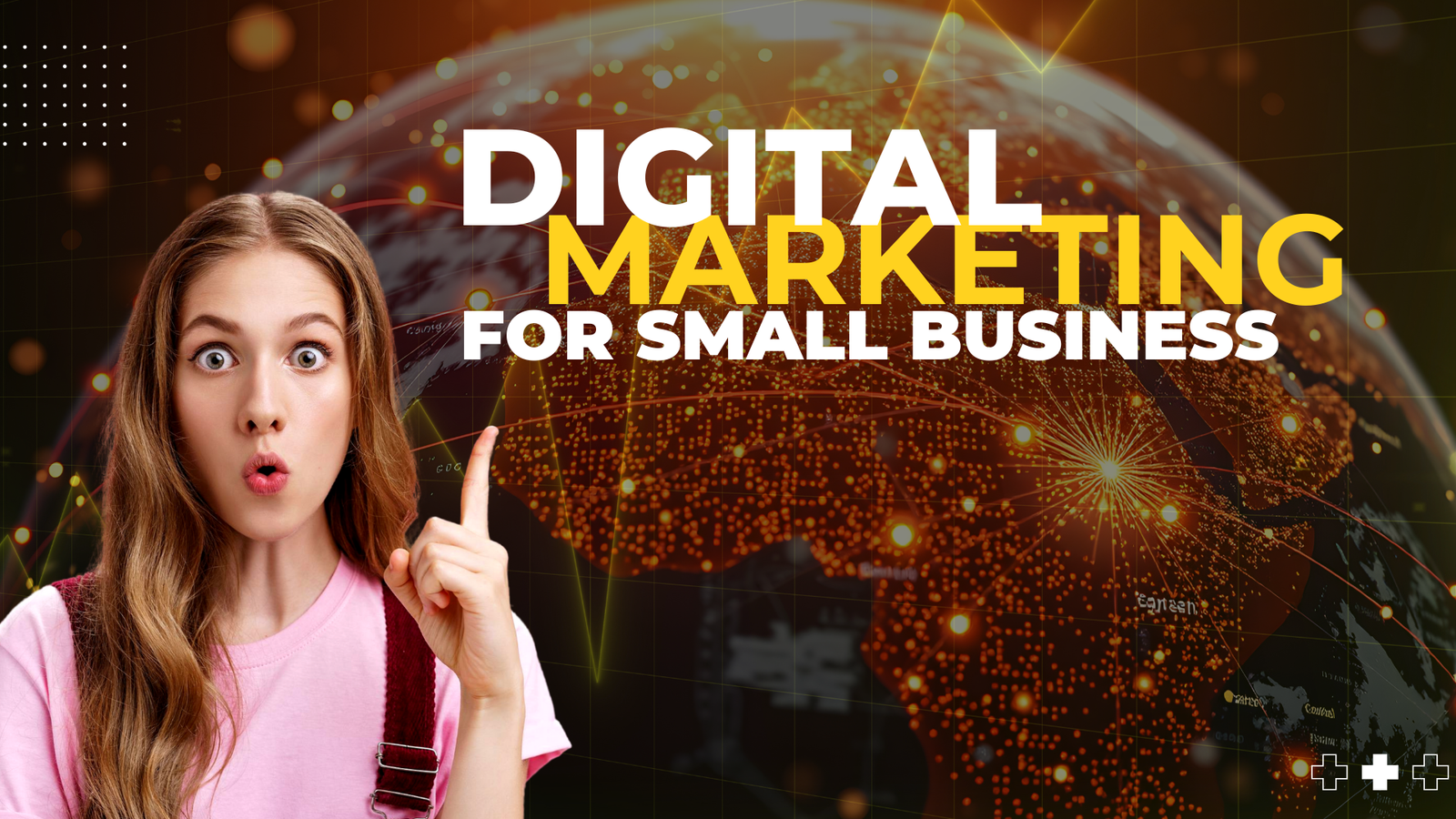
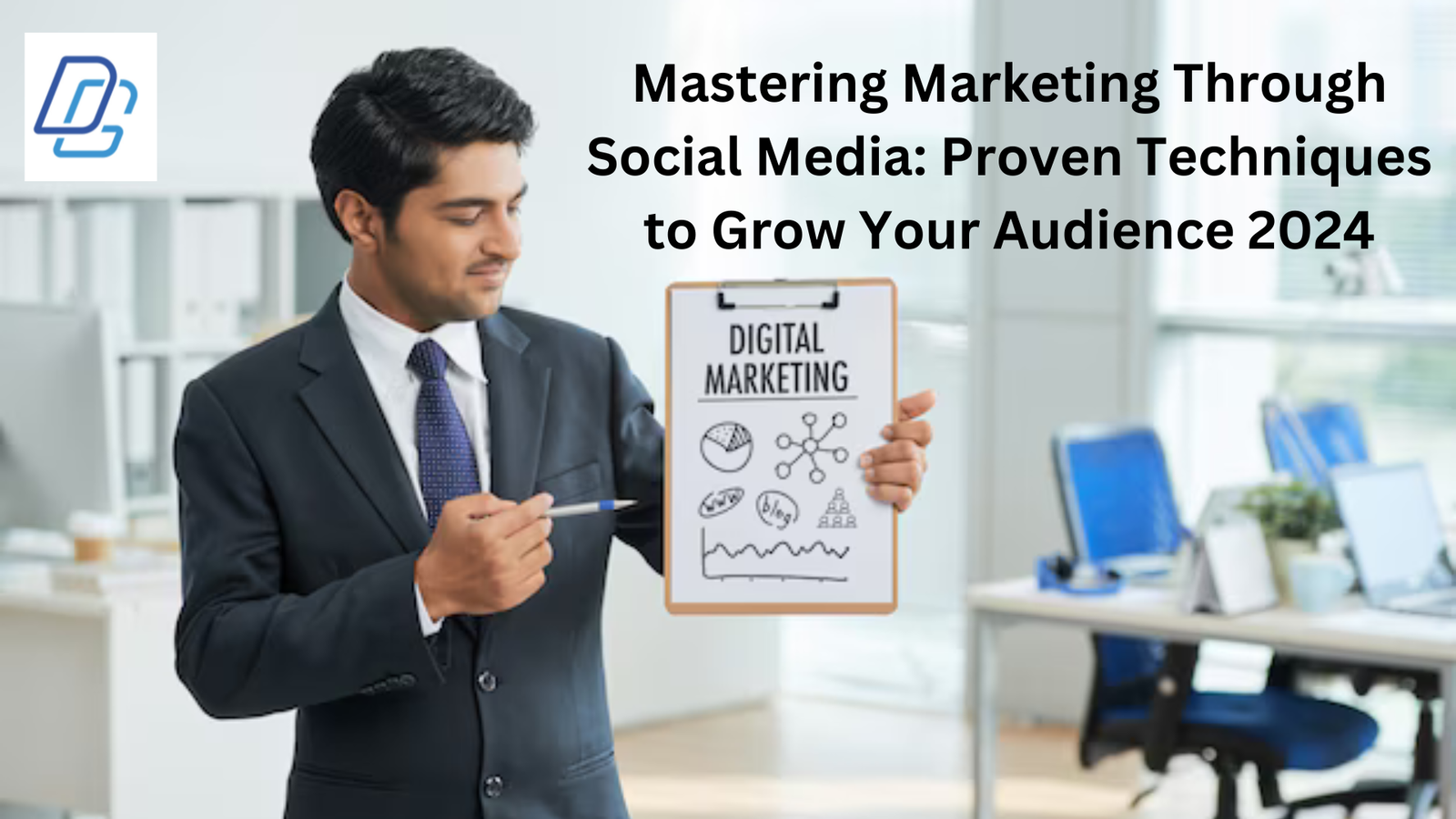
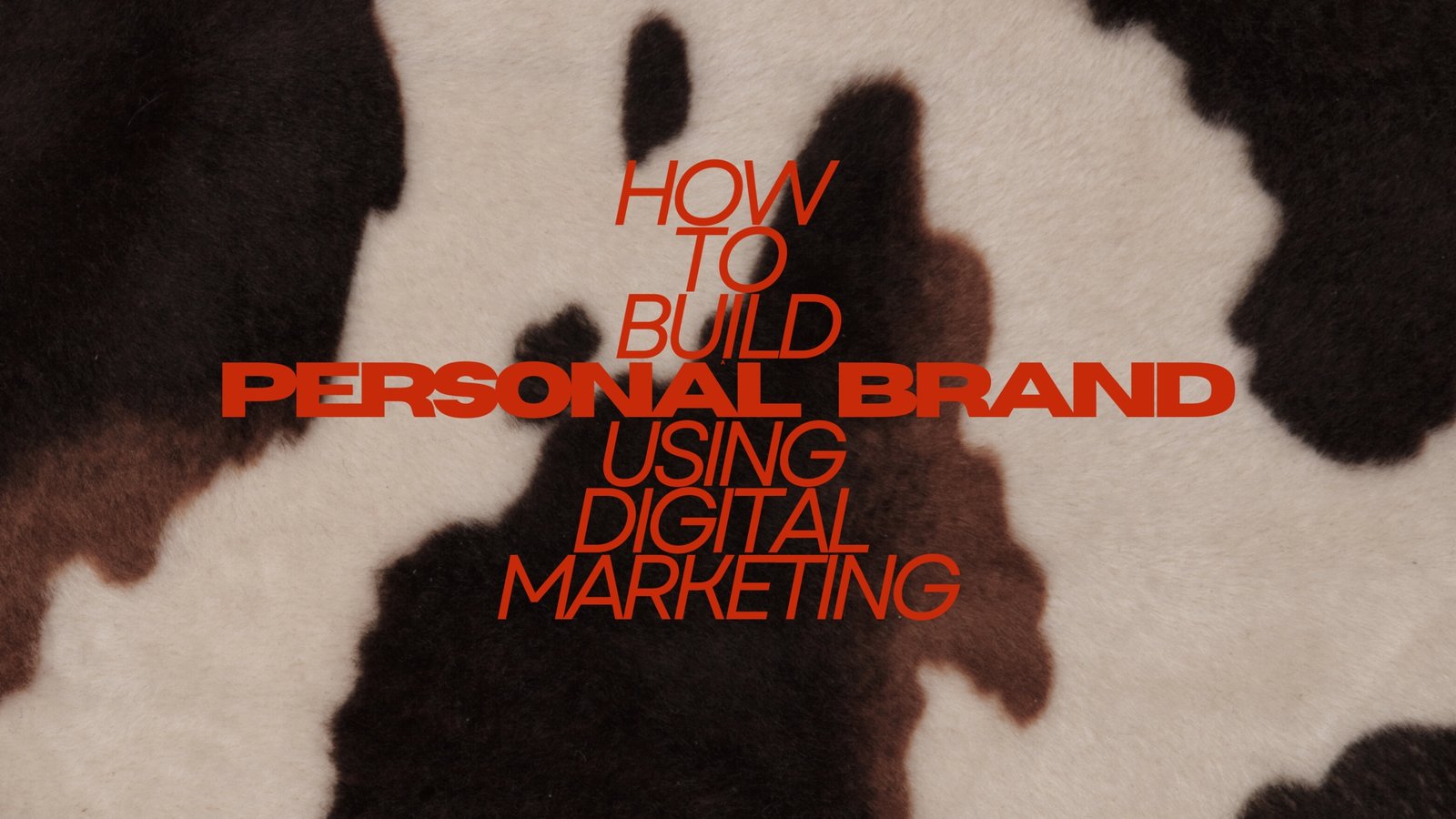

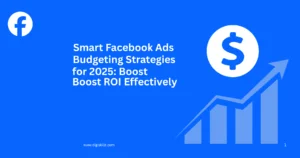
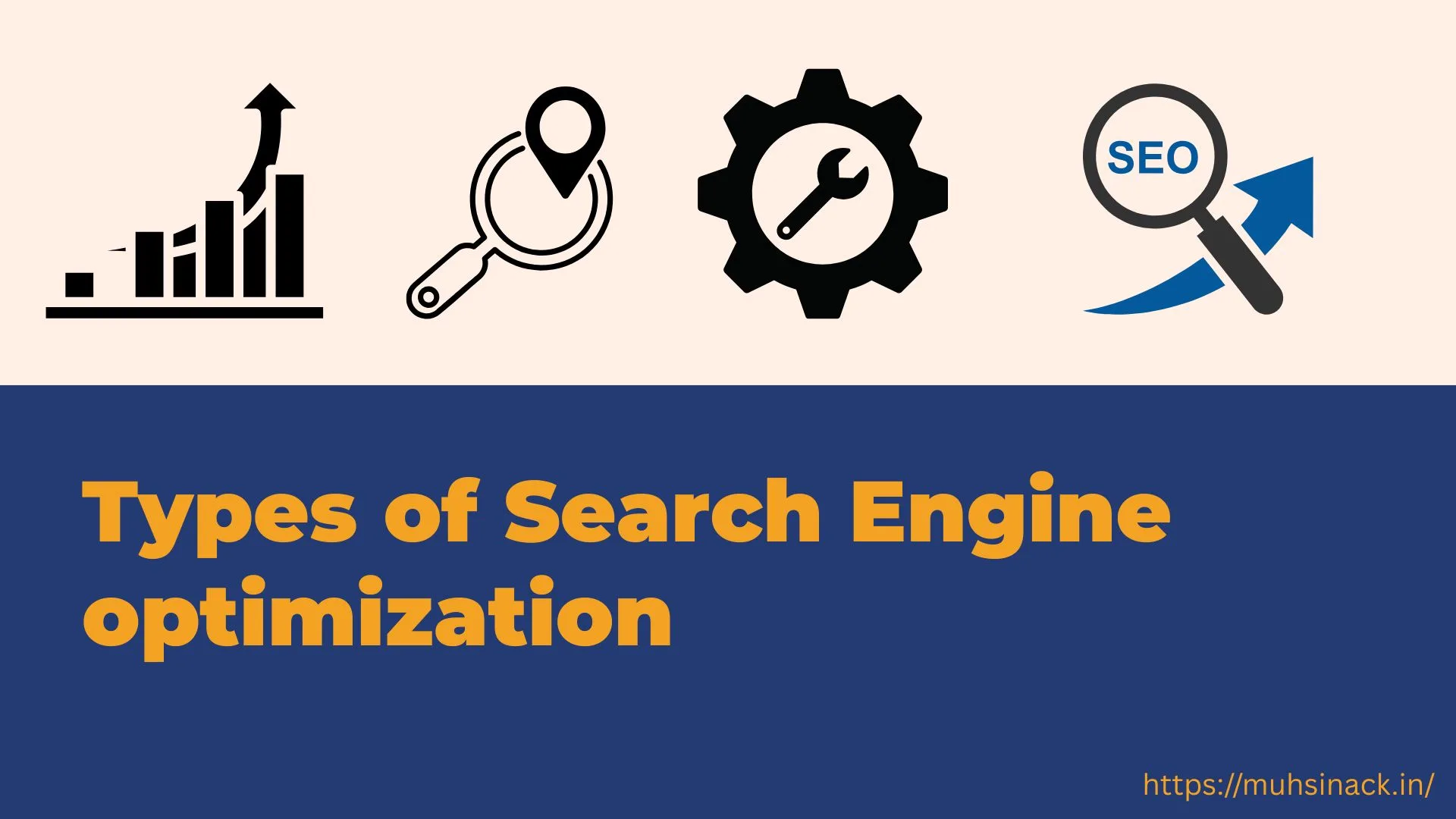

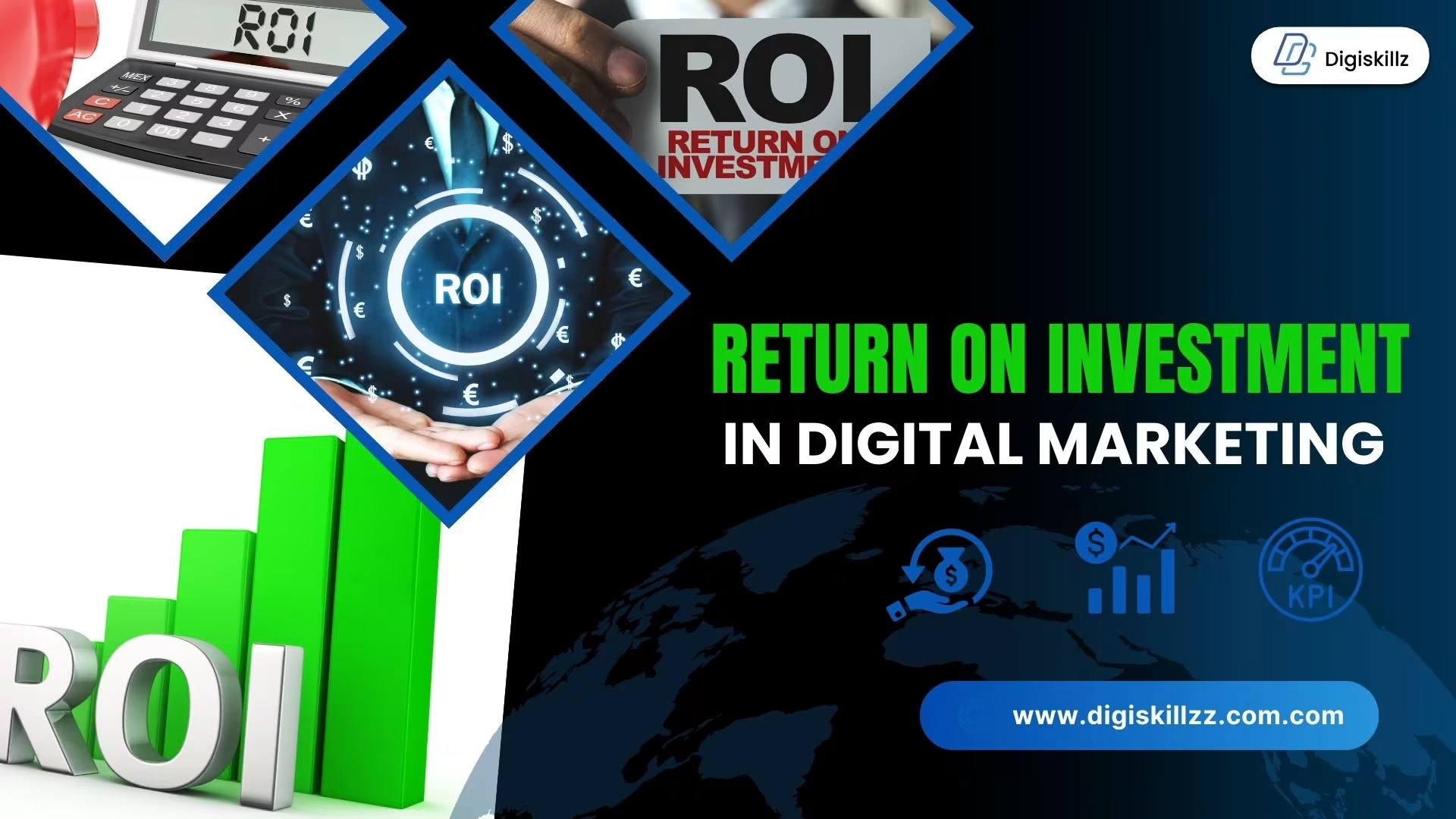
Leave A Comment